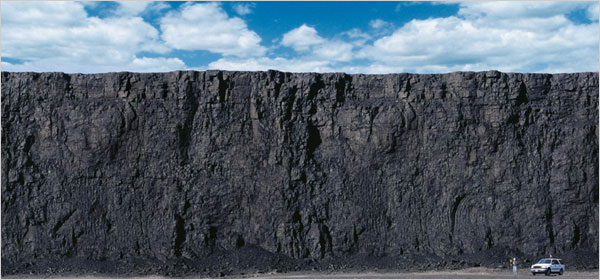2010 was a dark year for the dirty U.S. coal industry, with the deaths of 48 coal miners – the deadliest year in nearly two decades – and widespread recognition of the threat posed by hazardous coal ash waste to waterways nationwide.
2011 hasn’t started off very well either, with a New Year’s Day article in the Washington Post noting the industry’s failure to begin construction on a single new coal-fired power plant in the United States for the second straight year.
An excerpt from the Post story:
Not only are the coal barons failing to build new plants, but their aging fleet is also facing a huge wave of coal-plant retirements thanks to new and emerging EPA regulations, as Grist’s Dave Roberts summarized last month.
Nevertheless, the coal industry’s best efforts to flood Washington with lobbyists and dirty PR tricks seem to have crippled President Obama’s campaign pledge to end mountaintop removal and stalled out EPA administrator Lisa Jackson’s momentum towards regulating coal ash as the hazardous waste it surely is.
While Massey CEO Don Blankenship chose to retire rather than take responsibility for his company’s deadly mines, his successor will no doubt keep on blasting away Appalachia’s mountains, with devastating consequences for the air, water, culture and health of local residents, not to mention the climate impacts.
The U.S. Energy Information Administration projects that the United States will lead the world into catastrophic global warming over the next 25 years. In its 2011 Annual Energy Outlook, the EIA predicts that energy-related CO2 emissions will “grow by 16 percent from 2009 to 2035,” reaching 6.3 billion metric tons of carbon dioxide equivalent (or 1.7 GtC).
Those “energy-related CO2 emissions” projections are of course based on the United States’ continued addiction to oil and coal.
Thanks to extensive coverage of Massey’s and other coal barons’ misdeeds in films, blogs and newspapers worldwide, and a massive grassroots groundswell building momentum to shut down dirty coal plants and focus our energy future on efficiency and clean energy solutions, 2011 might be a brighter year.
But unless President Obama’s administration follows through on pledges to rein in mountaintop removal and regulate coal ash as hazardous waste, 2011 could see more of the same story of death and destruction from the coal industry.
Who will prevail in 2011? The Bad News Barons of Dirty Coal? Or the Climate Hawks and battle-ready clean energy advocates?
Subscribe to our newsletter
Stay up to date with DeSmog news and alerts







